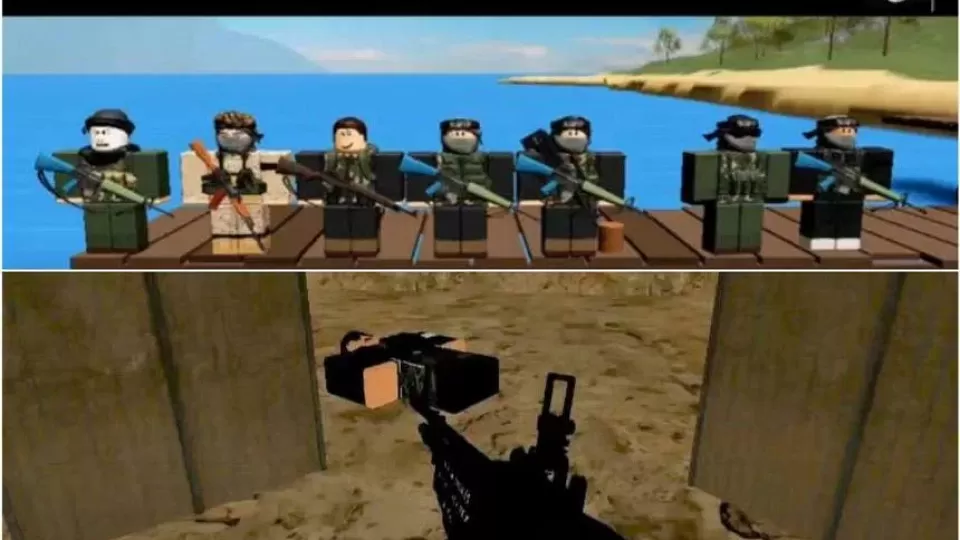February 22, 2023
SINGAPORE – Terrorist and extremist groups target youth, including two self-radicalised teenagers who were recently dealt with under the Internal Security Act (ISA), through online discussion groups and games.
The Internal Security Department (ISD) said on Tuesday that extremist groups are known to use such means to radicalise and recruit young people online.
This is because youngsters may be more impressionable in their search for a sense of identity, purpose and belonging, said the department.
The groups have also disseminated their ideological beliefs through video games, using in-game communication features to recruit vulnerable gamers and tapping gaming culture to increase their reach among younger people.
For example, the Islamic State in Iraq and Syria (ISIS) terrorist group has released propaganda videos which contain scenes that parallel those of popular online video games, while far-right extremists have also repurposed elements from video games to amplify their violence. This includes live-streaming their attacks in the style of first-person shooter video games, such as in the case of the 2019 attacks in Christchurch, New Zealand, and Halle, Germany.
ISD said on Tuesday that a 15-year-old who desired to behead people he considered as “disbelievers” and become a suicide bomber was detained under the ISA last December. In January, a 16-year-old who created ISIS propaganda videos using footage from online gaming platform Roblox was handed a restriction order.
They were both in contact with 18-year-old Muhammad Irfan Danyal Mohamad Nor through an extremist channel on messaging platform Discord.
Irfan was detained last December after he planned to stab and kill non-believers in dark alleys here.
He also planned to carry out a mass attack at Amoy Quee Camp by recruiting a suicide car bomber, and construct a C4 explosive device to bomb the Keramat Habib Noh grave site at Haji Muhammad Salleh Mosque in Tanjong Pagar.
He intended to declare Coney Island an ISIS wilayat (province) in the hope that it would be recognised by ISIS as its official affiliate.
ISD said on Tuesday: “The cases involving Irfan and the two youths demonstrate yet again that extremist ideas continue to find resonance among Singaporeans.”
It added that since 2015, ISD has dealt with 11 self-radicalised Singaporeans aged 20 or below under the ISA. All of these individuals were radicalised online.
Responding to queries on what more can be done to deter extremist influence in games, ISD said that the authorities can and have blocked access to harmful online content.
The Online Safety (Miscellaneous Amendments) Bill was also passed in November 2022 that lets the Government direct social media services to disable access to harmful content by Internet users in Singapore, it added.
“However, in some cases, it may not be possible to block specific chat groups or channels on social media platforms, without cutting off all local access to entire platforms. Furthermore, new platforms and accounts can easily resurface,” it added.
ISD urged the public to play its part by being sensitised to the danger of extremist ideas, and to not watch or disseminate extremist content, regardless of the platform.
The department said the two teenagers are being rehabilitated. They will undergo religious counselling, be engaged by ISD case officers, and receive psychological help.
The 15-year-old detainee will undergo intensive religious counselling with two counsellors from the Religious Rehabilitation Group (RRG), with the aim of addressing the religious misconceptions that led to his support for armed violence and terrorist groups such as Al-Qaeda.
The 16-year-old will likewise undergo religious counselling with an RRG volunteer. He will also participate in programmes conducted by the RRG’s Resource and Counselling Centre to make him aware of the threat of terrorism and extremism, and deepen his appreciation of Singapore’s multiracial and multi-religious society.
ISD officers will engage the teens regularly to guide them and assess their rehabilitation progress, and ISD psychologists will address the non-ideological factors that made them vulnerable to radical influences. These factors include their lack of critical thinking in evaluating information that they consumed online, and their permissive attitudes towards violence.
ISD said that both the teens’ families are closely involved in their rehabilitation.
An aftercare officer is working with the 16-year-old’s family to ensure the teen has the support needed to stay on track with his rehabilitation. The teen has also been assigned a mentor who can be a role model for him and impart pro-social and cyber-wellness skills to him.
The 15-year-old is allowed regular family visits to provide him with social support and encourage him to focus on his rehabilitation.
ISD said it is also working closely with the teenagers’ schools. The 15-year-old has been given his school’s curriculum and study materials so he can continue with his studies while in detention. The department has assigned him tutors to help him prepare for his national examinations.
The 16-year-old is supported by his school principal, school counsellor and form teacher, who will monitor his behaviour and progress in school.
ISD said that all detainees attend religious counselling sessions at least once a month with a religious counsellor from the Religious Rehabilitation Group.
A psychologist addresses the non-ideological factors that made them vulnerable to being radicalised, and the detainees get social support for their rehabilitation and eventual reintegration into society.
This includes ISD case officers regularly engaging them to provide them with social interaction and support.
The Inter-Agency Aftercare Group also helps the detainees through community welfare organisations.
The public can call the ISD Counter-Terrorism Centre hotline on 1800-2626-473 (1800-2626-ISD) if they know or suspect that someone has been radicalised.


